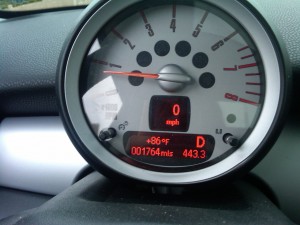You Live in Your Body – Not Your Doctor
I don’t know when it happened, exactly. But at some point in the last few decades, we as a nation, collectively turned over our bodies to doctors and said “here, fix this and get back to me when you have it sorted out.”
It makes some sense. We need lawyers for legal things. Accountants for the undecipherable tax code, and so on. We outsource complex things to complexity experts. It’s a useful division of labor.
But outsourcing your health is not as uniformly advantageous. It works well in complex or emergency situations – and is the right thing to do in those cases – but not as well as in the ho-hum of everyday malaise.
And most disease is of the ho-hum variety. It is a slow creep toward a tipping point. Most disease is really quite boring. And that’s a good thing – you never want House to have to fix your health. Most people would have died before the 3rd commercial break.
But this also means that most of disease is in our day-to-day, ho-hum lifestyles. I could quote the statistics – but we’ve all seen them. Preventable heart disease, diabetes, lung cancer, etc. – all the heavy hitters are preventable or least modifiable …if we’d change our habits.
So why aren’t we changing our habits? We seem not to change until we are forced. And even then someone has to enter us into a TV contest and pay us to lose weight.
I am going to tackle this in a few parts. The next issue will be about the limits of science & medicine. But for now, I will focus one on facet of the patient’s role.
A useful analogy is your car. If your engine falls clean out of your car, you’d likely hire an expert to put it back. But surely, you fill your car with the right gas, get the oil changed and keep it running all without your car mechanic’s sign off? Your car has a dashboard full of indicators telling when to do all these things – it’s easy.
Your body has these indicators, too. But we have coated the dashboard in butter-laden Bolognese pasta, tubs of frosting, and fountains of soda pop. We can’t even see the indicator lights anymore – they are covered in nutella.
Even if indulgent desserts are not your vice, how many times this week alone have you “pushed through” to make a deadline…to endure some sort of pain when your body wanted rest…to appear tougher than you are? We let our speedometer read 145 mph and our engines overheat then we wonder why our cars wouldn’t go to sleep when we finally got it home from a 16 hour day?
Whatever we use to cover it up, the fact is that many of us have lost touch with our useful, gently calibrated blinking light dashboards. To compound the issue, biology is actually quite obliging on this point. If you fill your body with sugar every day – your homeostatic balance will reset. This is true of almost every physiological set point. If you are not a sugar eater – and you eat a whole chocolate bar, you are going to feel giddy, jumpy, possibly nauseous. But if you do that every day, your body will adjust. You will not feel giddiness anymore – but the damage to your cells will continue, unbeknownst to you. You have created “tolerance.” Tolerance decreases the sensitivity to the feedback from your body.
If you are suffering from obesity, type II diabetes, stress or any number of diseases that have accumulated slowly – you may not even remember what health feels like. And in that case – it is plenty difficult to be motivated to change. What are you trying to change to? You are used to how you feel, now. You are tolerant of it.
Last week I talked about numbing out. I believe that this is part of the problem here; we are numb to our own bodies. And in the numbness, we don’t get feedback at the right levels anymore, so we turn to doctors and ask them to tell us what the feedback may be. Doctors are here to help you when the problem has outpaced your skills, or has become complex and you need their expert care. They can help put you back on course – but once you are back on course, how you drive is up to you. And it’s worth taking that mantle back.
The good news is this. Just as biology reset your homeostasis in one direction – you can leverage biology to reset your homeostatic balance in the other direction.
The human body is the most precision instrument on our planet. It puts a Formula 1 Ferrari to shame. Use your health care providers like a pit stop crew, but remember you are the driver. You win the trophy at the end of the race, not the crew.
This issue is obviously more complex than I’ve outlined here – and I am happy to talk individually on it and how to reset your homeostasis. But I wanted to scratch the surface of what I think is an enormous problem we face in the West of hoping that there is a pill which will cure everything.
-Amy
